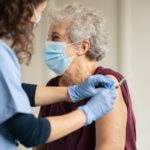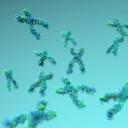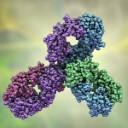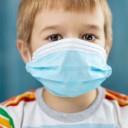-
More Data on COVID-19 Vaccination and Cancer
Studies indicate that many people with cancer have an antibody response to the vaccines, but this response may be reduced or absent in certain patients.
by Anna Goshua
-
Putting the Patient in the Driver’s Seat
In her new book, Cancer Support Community executive chair Kim Thiboldeaux offers advice to patients on how to steer their way through a cancer diagnosis, treatment and beyond.
by Kevin McLaughlin
-
A Closer Look at Sarcopenia
Gastrointestinal oncologist and health services researcher Ryan Nipp discusses new research about how muscle quality correlates with cancer outcomes.
by Ashley P. Taylor
-
Genetic Testing Gaps
Testing for hereditary mutations is increasingly recommended for people with cancer, but recommendations do not always translate into access to testing and appropriate counseling.
by Kate Yandell
-
Rethinking Access to Disability Benefits
Advances in screening and treatment mean there are more cancer survivors than ever, but survivors who struggle to work can face difficulty getting disability payments.
by Jen Tota McGivney
-
Expanding Immunotherapy
At a patient advocate event, researchers discussed how to extend the benefits of immunotherapy to more people.
by Kevin McLaughlin
-
Should All Kids With Cancer Get Genetic Testing?
Testing children with cancer for hereditary mutations could impact their treatment and provide information relevant to other family members.
by Marcus A. Banks
-
Understanding How Radiation Causes Cancer
Researchers are investigating who is at greatest risk for radiation-induced cancers.
by Kate Yandell
-
How Long Do Immunotherapy Side Effects Last?
For people with melanoma who receive immune checkpoint inhibitors after surgery, side effects can remain even after treatment has been completed. These chronic side effects are most often mild.
by Anna Goshua
-
Making Connections at the AACR Annual Meeting 2021
Attending a scientific conference as a patient advocate can be an exhausting, overwhelming and hugely rewarding experience.
by Bradley Jones
Cancer Talk
The Power of Comedy
In a new play, the pain of cancer can be a chance to laugh.
by Ashley P. Taylor
Melanoma Risk in Childhood Cancer SurvivorsPeople treated for childhood cancer found to have twice the risk of developing melanoma as an adult.
by Cameron Walker
Online Second OpinionsMore than half of patients who participated in a program offering online second opinions were recommended a change to their treatment plan.
by Eric Fitzsimmons
Musical Toxicity an Effect of Cancer TreatmentStudy finding cancer treatment affects ability to play or sing music highlights need for physical therapy, experts say.
by Kyle Bagenstose














